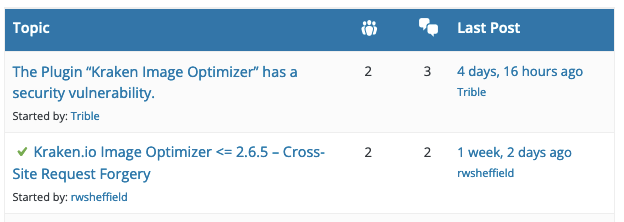Our Firewall Plugin Caught That SQL Injection Vulnerability Tenable Discovered Hasn’t Actually Been Fixed
Last month, security provider Tenable claimed that an authenticated SQL injection vulnerability had existed in the WordPress plugin ReviewX and was fixed in version 1.6.4. It turns out the vulnerability hasn’t been fixed.
The CVE system allowed Tenable to create a CVE ID for this, CVE-2023-26325, and didn’t check to make sure the claims were accurate [Read more]
